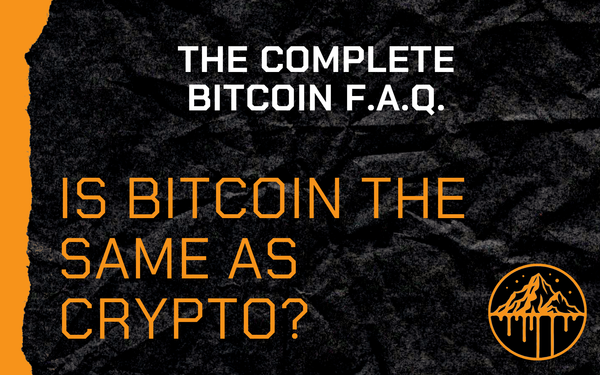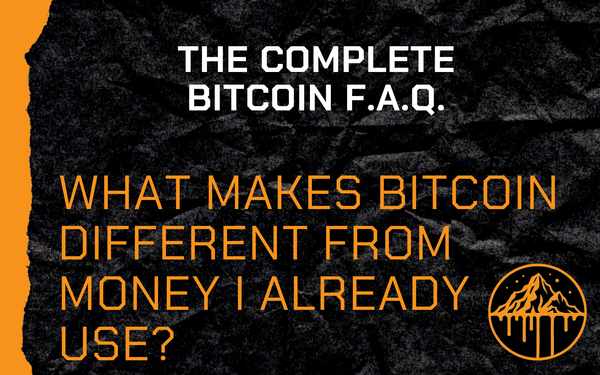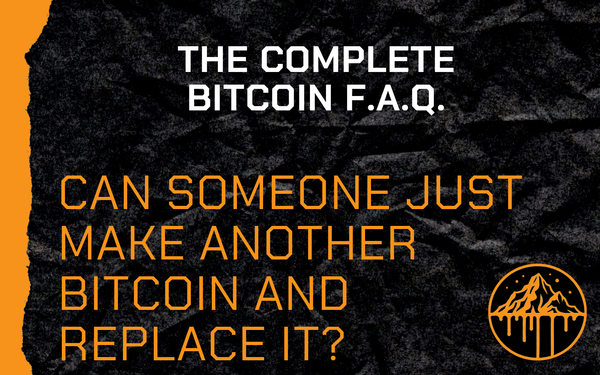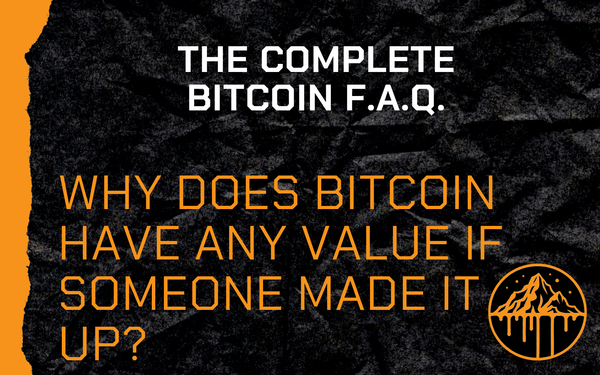Status Quo Bias: Why People Stay in Failing Systems
We assume that what we’ve always done must be right, even when it clearly isn’t working. This is Status Quo Bias—a cognitive shortcut that tricks us into sticking with the familiar, even when better options exist.

The Psychological Trap: Why People Fear Change
You hear it all the time:
- “Banks have been around forever—why would I trust Bitcoin?”
- “I’ve always kept my savings in cash. It’s just how things are done.”
- “I know inflation is bad, but I don’t want to risk my money on something new.”
Most people don’t choose their financial system. They inherit it.
We assume that what we’ve always done must be right, even when it clearly isn’t working. This is Status Quo Bias—a cognitive shortcut that tricks us into sticking with the familiar, even when better options exist.
The result? People stay in broken systems longer than they should—whether it’s a failing economy, a dying industry, or a collapsing currency.
Although I knew pay-per-click advertising broke the advertising system independent publishers used since 2009, I kept writing and publishing for years after it was no longer possible to get organic sales on platforms like Amazon. I could see my royalties declining unless I ran paid ads, knowing that the system was now “pay-to-play” and yet I succumbed to Status Quo Bias, sticking with the familiar even when it wasn’t working any longer.
How the Brain Works: The Psychology of Status Quo Bias
Humans are wired to avoid change because change feels risky. We’d rather stick with something suboptimal than take a chance on something better.
Why People Resist Change:
- Loss Aversion → The fear of losing what we have outweighs the potential for gain.
- Cognitive Effort → Thinking takes energy. It’s easier to stick with what we know.
- Social Proof → We look to others for validation. If everyone else trusts the system, it must be fine… right?
The Mental Loop That Traps People:
- “Bitcoin is different.”
- “Different means risky.”
- “Risky means I should avoid it.”
People don’t weigh the actual risks of fiat—they just assume Bitcoin is the risky option because it’s unfamiliar.
But here’s the truth: Staying in a broken system is the real risk.
How Status Quo Bias Affects Investing & Finance
Most people don’t evaluate financial systems objectively—they just go with what they’ve always done.
- Even when inflation erodes savings, people leave their money in banks.
- Even when pensions become insolvent, people assume their retirement is safe.
- Even when the stock market is rigged, people keep buying index funds.
Examples of Status Quo Bias in Finance:
- “I keep my money in a bank. That’s just how it’s done.”
- “I invest in stocks because that’s what my parents did.”
- “I don’t need Bitcoin—my 401(k) is fine.”
These aren’t rational choices. They’re default settings.
The financial system doesn’t work in your favor—but instead of questioning it, people cling to it.
Bitcoin Case Study: How Status Quo Bias Delays Adoption
Bitcoin challenges everything people believe about money.
For most, that’s terrifying—because if Bitcoin is right, that means the system they’ve trusted their whole lives is wrong.
Rather than face that reality, they reject Bitcoin not because they’ve thought it through, but because it contradicts what they’ve always known.
Common Status Quo Bias Statements About Bitcoin:
- “Bitcoin is too new.” (Fiat has only existed in its current form since 1971.)
- “I trust my bank.” (Banks fail constantly.)
- “The government wouldn’t let the dollar collapse.” (Every fiat currency in history has failed.)
Bitcoiners didn’t wake up one day and decide to buy a volatile asset for fun. They broke free from Status Quo Bias by questioning the financial system itself.
What Happens When People Overcome Status Quo Bias?
- They stop asking, “Is Bitcoin safe?” and start asking, “Is the dollar safe?”
- They realize Bitcoin isn’t risky—sticking with the dollar is.
- They stop waiting for permission to change.
How to Recognize & Overcome Status Quo Bias
Want to escape the trap of the familiar? Ask better questions.
“If I were starting fresh, would I choose this system?”
- If fiat & banks didn’t exist, would you invent them? Or would you choose Bitcoin?
Challenge: “Because that’s how it’s always been.”
- Just because something was normal doesn’t mean it was right.
Look at the risks of inaction.
- Staying in fiat isn’t safe—it’s guaranteed loss thanks to inflation.
Zoom out.
- Change feels scary in the moment, but in hindsight, it always seems obvious.
Final Thought: Why Change is Hard—But Necessary
Most people don’t resist Bitcoin because it’s bad. They resist it because it’s different.
The world is changing whether we like it or not. Fiat is crumbling. Inflation is eating savings. The system is rigged.
But people cling to the old system because it’s easier than facing reality.
The question isn’t whether change is coming. The question is: Will you be ready for it?
Wealth melts. How much you got left?
Disclaimer: Melting Wealth is not financial advice. It’s a wake-up call. Think for yourself, question the system, and take responsibility for your decisions. Your money, your risk, your move.





